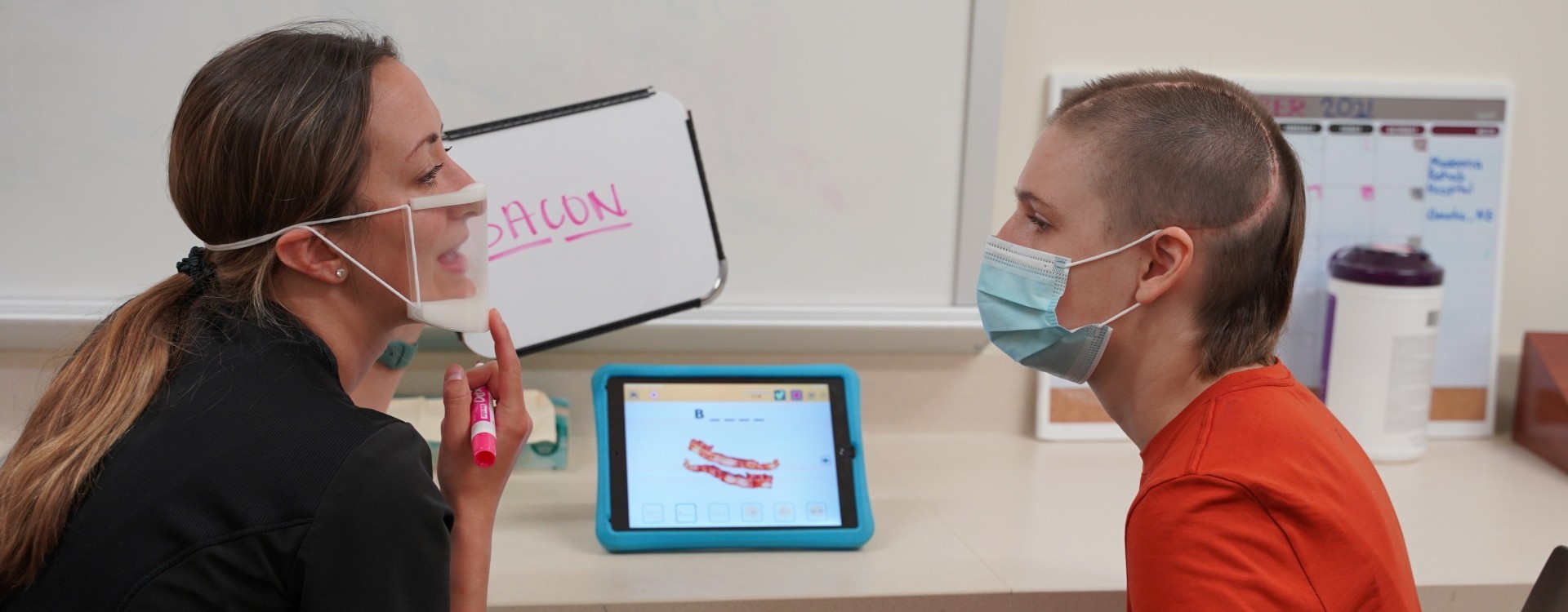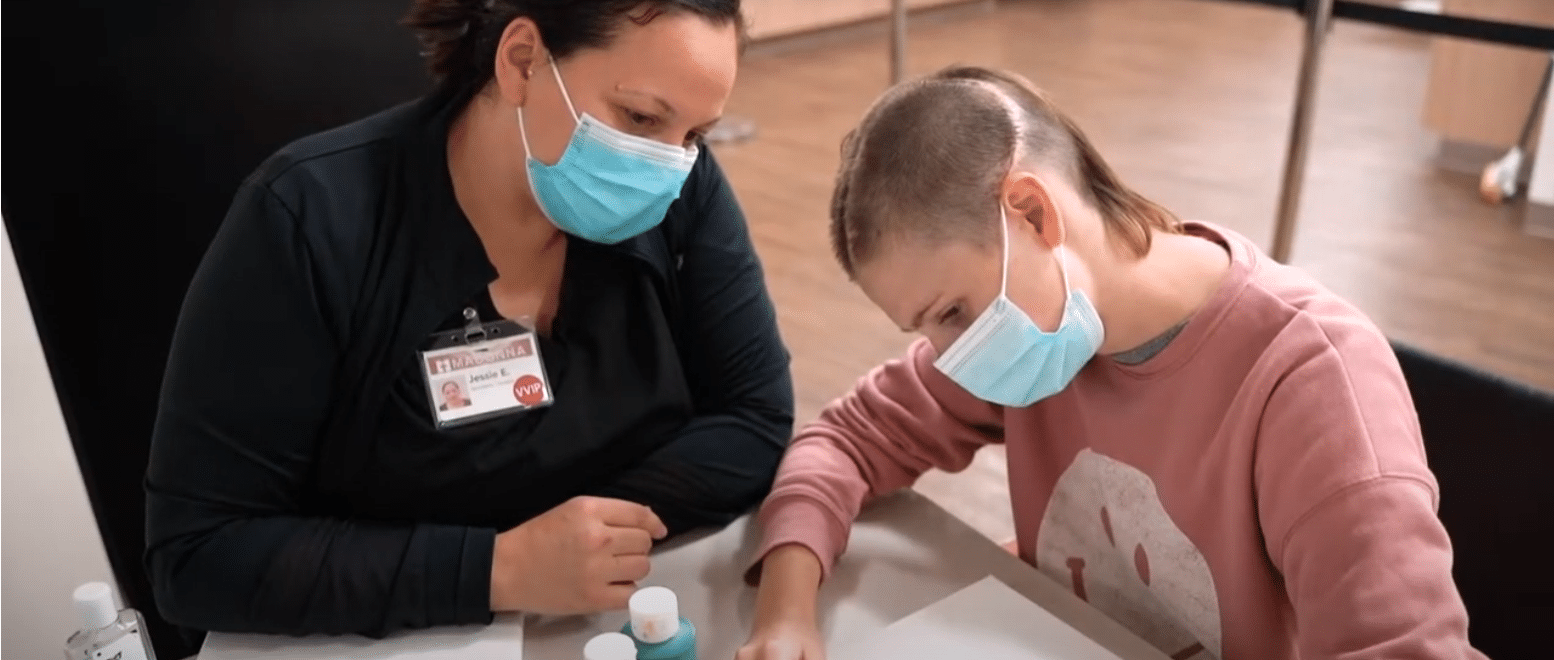Sassy might as well be Rachel “Sophie” Hardin’s middle name. Family and friends say the 23-year-old from Kansas City, Missouri, has always been feisty and independent.
“She just wants to do things herself, and she doesn’t want help,” Kevin Hardin, Sophie’s dad, said. “She wants to do it herself, and she’s determined to do it herself, and that drives her to do it herself.”
Her strong will is proving key to her recovery journey.
On August 31, Sophie went to a Kansas City Royals baseball game with her family when she started to have a headache. The pain became more severe, to the point she lost consciousness. She was taken to St. Luke’s Health System where it was determined she had an arteriovenous malformation (AVM) rupture —the blood vessels in her brain became tangled and burst. She was rushed to surgery and spent three weeks in the intensive care unit before coming to Madonna Rehabilitation Hospitals’ Omaha Campus.
“We were told in the ICU as she was going through the surgery that she had three things going for her — she was young, she was healthy and she was feisty and stubborn,” Kevin said.
Once at Madonna, Sophie hit the ground running, eager to regain her independence. The right side of her body and her speech were the most impacted by the AVM, so she worked tirelessly for four weeks in intense inpatient physical, occupational and speech therapies.
As an architect-engineer, Sophie would spend her days working on a computer and communicating with clients. She visited with Madonna’s on-site neuro-optometrist to work through her right side neglect, forcing her brain to relearn how to take in and process information on a computer screen from her right eye. Her care team also made Madonna’s Work Re-Entry program part of her therapy schedule, simulating the skills she would need to complete daily tasks and helping her through her aphasia.
“Aphasia is a language disorder, which means it was hard for her to find those words that she wanted to say, and as those words started coming out better, they were coming out wrong,” Liz Rogers, a speech-language pathologist at Madonna, said. “Instead of saying a sentence that she wanted, she thought she was saying it, but those words would just come out in a jumble and scrambled up. She did a really good job understanding what we were saying, but she couldn’t express what she needed.”
Being a social butterfly, not finding the words she wanted to use and communicate fully was frustrating for Sophie, but her emotions and sense of humor always came through. She formed bonds with her care team by practicing having conversations with them and learning about them as people.
“We got close after knowing each other,” Sophie said. “It was fun to have them and the relationship that we had, getting to know people like that.”
For Madonna’s physicians, therapists and nurses, those connections are a highlight of the job. It allows staff to create a customized treatment plan and relate to their patients on a deeper level.
“It’s hard sometimes, I think, as a patient, because these therapists, we know so much about them,” Liz said. “We know their past history, their case history, their family, everything like that, and they don’t really get to know anything about us, so I shared a lot of my life with Sophie. We looked at pictures of my baby girl and my husband and we used those as conversation starters and have that context. I think that really helped her get over that, ‘I’m in a hospital. I’m 23 years old, and I don’t want to be here,’ and that made it a little bit more fun and natural for her.”
Capitalizing on the progress she made at Madonna, Liz said the sky is the limit for Sophie’s recovery journey.
“Sophie made really quick progress when she first got here, and with aphasia, it’s hard to make that kind of progress,” Liz said. “But, she’s young and determined, and she’s got a great family to support her, so I think she’ll continue to make really great progress and get back to doing all those things she loves to do.”






